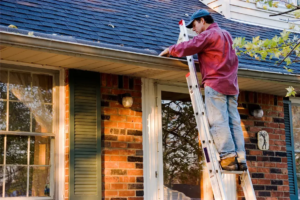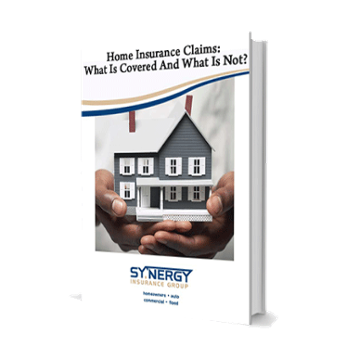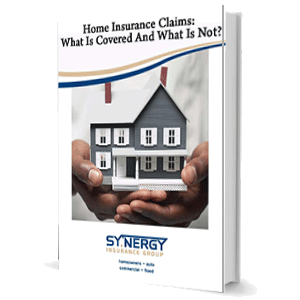Autumnal Care: Navigating Fall Home Maintenance in Florida


A vacation home is truly one of life’s ultimate luxuries. But it’s also one of the best long-term financial decisions a homeowner can make! Owning a vacation home is not for everyone though. There’s the stress of upkeep on a second property to consider and the how-to of managing renters and renters insurance. If you’re thinking about purchasing a vacation home, you’ll find the following tips valuable as you weigh your options.
A vacation home sale differs in many ways from the purchase of your first home. For one thing, there are no friendly breaks from the government like tax incentives on secured loans. On top of that, you won’t be able to deduct the mortgage interest on accumulated debt over $750,000 (a number that is easy to hit with two mortgages).
You’ll need a blemish-free financial history regardless of whether you plan to rent the second home or keep it for yourself. So, what’s your first step toward buying a vacation home? Calculate the long-term expenses (property, taxes, water bills, etc.) along with the price of the mortgage to project future costs and determine what you can afford.
Want to rent your home when you’re not there? It’s a great option, especially with services like AirBnB that make it easy to advertise your gorgeous home to eager renters around the world. A word of warning: it is also because of AirBnB that many cities have adopted more stringent, short-term rental rules. Check the area for city zoning and administration codes, and understand all rental regulations before you buy.
You’ll also want to create a system ahead of time for finding responsible and financially savvy renters. To get good tenants, you’ll need a thorough application process that includes background checks and requires renters insurance. The best rental properties are homes, guest cottages, or apartments in low-crime areas with plenty of job growth or tourism appeal.

Want to learn more about exactly what’s covered in a standard homeowners policy? Our Home Insurance Claims eBook takes you through different scenarios and explains whether you’d be protected. Click the graphic to get your copy, and protect your homes with ease.

It’s easy to forget about your car insurance rates after you purchase it the first time. Autopay systems keep that bill out of sight, out of mind usually. But the truth is your rate was not set in stone when you purchased the first time, and rates can vary greatly from year to year and company to company. Synergy helps unsuspecting drivers save money every day by reevaluating their coverage and providing them with any possible discounts and the most up-to-date rates. Here are five of the most common factors that influence the price of your auto insurance. It only takes a few minutes reach out to to a Synergy Insurance Group expert to evaluate your policy. Let’s see if we can put a little extra money back in your pocket. Read more
The 2020 Florida Disaster Preparedness Sales Tax Holiday is here, from May 29th – June 4th. Unlike previous years, there is only ONE tax holiday for disaster preparedness supplies in 2020. So it’s time to stock up on those high demand hurricane supplies and general household items. Because, don’t forget hurricane season starts on June 1st (what a crazy coincidence!) and a lot of disaster preparedness items are sales tax exempt during this time.
When a hurricane hits, you don’t want to be scrambling to find these important disaster preparedness items. You can avoid long lines and a lot of stress by planning to pick up these top disaster preparedness items during the sales tax holiday. Click the image below to see the high demand tax free items.
While there are price limits on what you can buy, the range of emergency supplies isn’t half bad:
Remember that the most common emergency items are always exempt from taxes, including first-aid kits, basic foodstuffs (including baby formula), bottled water, and prescription medications.
There’s little worse than running smack dab into an emergency without the supplies you need! Now is the time to get the fuel, food, and lighting you need if worst comes to worst. Don’t stand in line with everyone else, only to find out the items you need most are sold out. Prep for hurricane season now (without those pesky taxes!) and rest easy when the storm hits. You can get all the details of Florida’s Tax Free Holiday here as well.
Synergy Insurance has been helping Floridians improve family safety for years, and we want to help you too—whether you’re a client or not! For more information about disaster prep, download our Disaster Preparedness Plan to learn more about what to do when a storm touches down. If you have any questions about how homeowners insurance can help you get the coverage you need to stave off the worst of the storm, call Synergy Insurance today.
Your homeowners insurance premium may seem like a relatively static bill in your life, especially if you’ve had your property for many years. But you probably have more control over it than you think. Home insurers want to see their clients are doing everything they can on their end to protect their property. And making just a few tweaks to your home security can leave you with some extra cash in your pockets. Here are 5 ways you can save money on your home insurance: Read more
Hurricane season is winding down, so it may seem like flood insurance should be the last thing on your mind. With the immediate danger in your rearview, it may even seem financially prudent to wait for another 10 months before you even consider it. But before you declare the discussion over, keep in mind that you may be selling yourself, your family, and your property short if you wait too long to act. Here are three big reasons to look into flood insurance today.
Florida homeowners insurance companies aren’t exactly itching to provide coverage to homeowners when there’s a major storm going on. The vast majority of insurers will impose what’s known as binding restrictions on new homeowner policies until the storm threat is well passed. This means that homeowners can’t get coverage once the storm starts to build or while there is lingering damage from continuing bad weather.
It’s why homeowners need to buy flood insurance early or risk facing the storm unprotected. Most flood policies take 30 days to go into effect from the time of payment unless the policy is condition of a home sale. If there are several big storms building off the coast of Florida, you can wind up being cut off from the market for longer than you realize.
When it comes to your personal ROI, few policies are as effective as flood insurance. It’s a relatively small investment for homeowners, costing just a little extra per month. And if you do sustain water damage to your home, you have a policy available that can put your home back in order. Considering flood damage can easily cause thousands (if not hundreds of thousands) to fix, flood policies maximize your spending in all the right ways.
Most insurance policies don’t cover flooding damage unless the homeowner specifically requests the clauses. But because policies are long and boring to read, many owners won’t even realize this until they call to file a claim. There is no worse feeling than to assume that your home can be fixed, only to find that you’ll need to pay out-of-pocket for the damages if you ever hope to return to your property.
When Panama City was hit, many outsiders looking in assumed it was the wind that caused all of the property destruction and massive devastation in the city. But those on the ground knew that much of the damage was really flooding. This is more than just a homeowner problem, it’s a city-wide problem. If people can’t get their homes fixed, then whole neighborhoods can descend into chaos.
It only takes an inch of water in a home to cause $25,000 in damages. And if you think you can rest easy because you’re located outside the designated flood zones, you may want to think again. One in five flood claims were filed by those who live outside the designated high-risk areas.
Flooding can be a scary prospect for any homeowner, but getting a flood quote doesn’t have to be. It only takes 5 minutes to fill out your information and receive a quote. We’ve made it even easier now! You can chat with an online agent to get your initial quote faster than ever. We’re here to protect you rain or shine, so let Synergy Insurance be YOUR insurance experts.
It’s that time of year again where little ghosts and goblins come out to play and neighborhoods take on a spooky glow. But the scariest part about Halloween can be gaps in your homeowner’s insurance that don’t cover hazardous Halloween mishaps! That’s not to say you should turn the lights out, crawl up inside, and forego the festivities. Here are five common household liability issues that arise on Halloween and how you can avoid them.
The most common home insurance nightmare is a trick-or-treater taking a tumble on your property, cracking their head open, breaking a wrist, or twisting an ankle. Keep kids and parents safe by minimizing hazards that lead up to your door. This includes trimming back shrubs, evening out the lawn, fixing loose tiles, and clearing wood piles or other debris away. Walk along your entry path from the road all the way to your front door before the big night. Are there any trip hazards along the way? Is the path clear? Keep lights bright enough so everyone can see where they’re going. If you don’t plan to hand out candy, turn your porch light off. Most neighbors know to take that as a sign you’re closed for business.
Go ahead, make your home spooky and give it the effect of a haunted house. But when it comes to actually scaring people, don’t even think about it. No jump scares. No popping out from behind bushes or chasing people with fake chainsaws. We hate to be a buzzkill, but homeowner’s insurance doesn’t cover the blood pumping risks that come with extreme shock and awe, or fear. Did you know Haunted House Insurance is a real thing? It’s true, but only amusement parks, corn mazes, zombies runs, and similar events carry it—homeowners don’t.
Between a steady flow of footsteps outside and your doorbell constantly ringing, your pet is sure to get excited, so it’s best to keep your pets away from the action. Scared cats and dogs could easily dart out the door. The chance for a scuffle with a neighborhood trick-or-treater is greatly increased during the festivities. Therefore keep your pets contained in a separate room, away from all the excitement.
Jack-o-lanterns are a tried and true way to celebrate Halloween, but they also lead to home fires every year. If you want to line your sidewalk with lanterns or line your porch with pumpkins, opt for little LED candles instead of real ones. Candlelit decorations are easily forgotten and left unattended during the festivities and can be a real danger. Don’t leave flames unattended and keep candles away from flammable objects, such as fake cobwebs and witches on straw brooms! Large lawn ornaments like inflatable pumpkins can also collapse unexpectedly, so keep them far away from sidewalks or anywhere people are walking.
With the changing of the seasons and so many different visitors arriving at your home on Halloween, now is the perfect time to take a closer look at your Florida homeowner’s insurance coverage. Give yourself and your guests peace of mind this Halloween by making sure you’re covered in the event of an accident.

It’s always a good idea to review your homeowners insurance policy to get a better idea of your coverage. The holidays are a great time to go over any questions you may have with your agent. In the meantime, our Home Insurance Claims eBook goes over the ins-and-outs of your coverage, answering your holiday-related coverage questions. Just click the image to get started!
Spring has arrived, which means it’s time to clean the cobwebs out of the corners, organize the closets and so forth. While you’re at it, don’t forget to revisit the important documents and other items you have in your home safe and in that safe-deposit box at the bank.
What documents do you need to keep? What can your shred? Are your valuable items properly secured?
Wait, what’s that? You don’t have a home safe? Or a safe-deposit box? Well, let’s look at why you may want to get one – or both – and what to keep inside.
Oftentimes these are well suited for safeguarding important documents and valuable things you access somewhat regularly, such as jewelry or watches. Keep in mind that while residential safes help protect against fire and theft, they often aren’t as robust as commercial models. For the best protection in a home safe, select a model that is heavy enough that a burglar couldn’t make off with it, and consider bolting it to the floor. Here are some of the things you may want to keep inside:
Speaking of safe-deposit boxes, are they an old-fashioned notion or something that’s worth your while? To answer that question, U.S. News & World Report recommends gathering everything you might want to store in a safe-deposit box and then determining whether you feel secure enough storing it all at home.
If not, a safe-deposit box may be a better, more secure option. A bank is more heavily guarded than your home, after all – against theft, fire and other disasters.
If you do decide on a safe-deposit box, here’s what you might want to keep in it:
If not, store these items in your home safe. And, here’s what NOT to put in a safe-deposit box:

After all, if something is valuable enough to lock up, isn’t it valuable enough to insure, too? Talk to us about your personal property coverage and about scheduling any high-value items, especially expensive jewelry and collectibles, separately.
Few things are worse than having an insurance claim denied, especially after a devastating event like a hurricane. But as you may already well know, it can be an all too common occurrence. Sometimes customers fight the denials and win, spending months or even years trying to convince someone that they deserve coverage. But it’s usually far easier to have a better understanding of how your policy works.
Homeowners in designated flood zones are required to buy some type of flood coverage, but more than half of people affected by flooding damage during a hurricane live outside the zoning lines. It’s a good idea to educate yourself about the benefits of flood insurance whether you live in a designated flood zone or not. The National Flood Insurance Program aims to reduce the impact of flooding on private and public structures. Check out their site to learn more about their program!
If a tree breaks the windows of your home or crushes your car, this is usually covered by your policy. If it was your car that was damaged, typically your auto insurance policy is the best outlet to cover your claim. But if a tree happens to fall in your yard, you’re usually on the hook to clean it up. You may even need to cover the damage if your neighbor’s tree falls on your house. It’s best to cooperate with your neighbor, let them know that you are reporting the claim to your insurance company and share any pertinent information with them as long as your carrier permits.
In 45 states in the US (including Florida), insurance policies have a (heavily buried) clause that allows them to deny claims if two catastrophic events occurred simultaneously and one of those events wasn’t covered. In other words, if the wind took out half your roof and flooded your basement, both claims might be denied if you didn’t have flood insurance.
If you do happen to live in a designated flood zone and were required to purchase federal flood insurance, it doesn’t automatically mean that your claim will be approved. The minimum federal flood insurance will only cover the structure of the home as opposed to any outdoor property. So if your pool was destroyed during the hurricane, you may be out of luck.
When it comes to hurricane claims, homeowners have one deductible for loss and theft as well as an annual deductible for a hurricane. So your claim can conceivably be denied because you need to meet both deductible minimums before your policy kicks in (exact deductibles depend on your policy).
Homeowners do have recourse if their claim is denied, it’s just a lot more work than understanding your coverage up front. Don’t wait until you are forced to file a claim to find out that you don’t have the right homeowners insurance policy. Synergy Insurance can make it easier (and less confusing) to ensure that you get the coverage you need. Get a free, no-obligation insurance checkup if you think your coverage is lacking, and let us be your insurance experts!
1000 Sawgrass Corporate Parkway,
Suite 450, Sunrise FL 33323
9:00AM – 5:00PM Monday – Thursday
9:00AM – 4:00PM Friday
